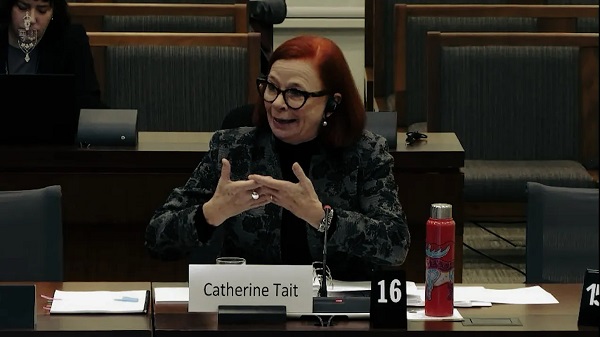Business
Energy Giant Wins Appeal In Landmark Lawsuit Blaming Company For Climate Change
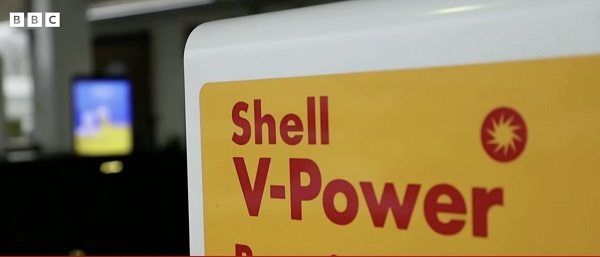
 From the Daily Caller News Foundation
From the Daily Caller News Foundation
By Owen Klinsky
Energy giant Shell won its appeal against a landmark 2021 legal ruling claiming the company was partially responsible for climate change and needed to cut carbon emissions.
The original decision handed down in 2021 ordered Shell to reduce its carbon emissions by 45% by the end of 2030, with anti-fracking group Friends of the Earth Netherlands bringing the claims. Now, a Dutch appellate court has thrown out the ruling, stating that climate science is not developed enough to impose specific emissions reduction requirements on private businesses like Shell.
“The court of appeal… takes as its point of departure that there is a broad consensus that, in order to limit global warming to 1.5°C, reduction pathways must be chosen in which CO2 emissions are reduced by a net 45% by the end of 2030 relative to at least 2019,” the Hague Court of Appeal wrote in its ruling. “The court cannot determine what specific reduction obligation applies to Shell.”

The Shell logo is displayed outside a petrol station in Plymouth on August 15, 2024 in Somerset, England. (Photo by Matt Cardy/Getty Images)
The court also noted Shell has already made efforts to lower emissions.
“To assume the impending violation of a legal obligation alleged by Milieudefensie [Friends of the Earth Netherlands] et al., the court would have to find that it is likely that Shell will not have reduced its scope 1 and 2 emissions by 45% by 2030, despite Shell’s concrete plans and the measures Shell has already taken to implement those plans,” the ruling stated. “Milieudefensie et al. have not provided sufficient arguments in support of that.”
The Hague’s decision comes as world leaders meet in Baku, Azerbaijan, for the United Nations’ COP29 climate summit this month, with the U.S. finalizing a levy on “excess” methane emissions from oil and gas producers Tuesday. A variety of world leaders, including President Joe Biden, French President Emmanuel Macron and Brazilian President Luiz Inácio Lula da Silva opted not to attend this year, while representatives from Afghanistan’s Taliban are slated to attend the climate confab for the first time ever.
Friends of the Earth Netherlands, Shell and the Hague Court of Appeals did not immediately respond to requests for comment.
Business
While Canada’s population explodes, the federal workforce grows even faster
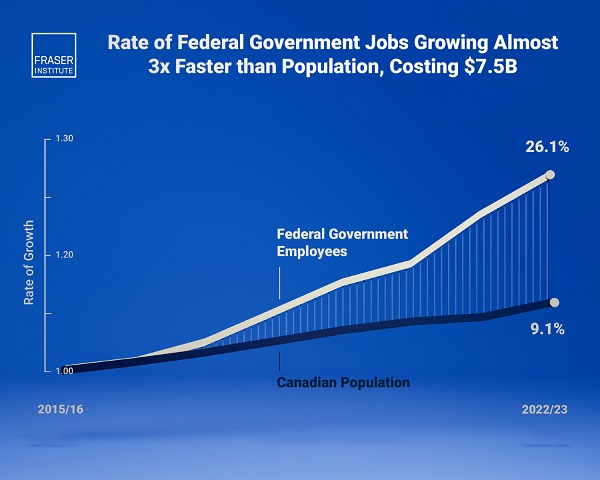
From the Fraser Institute
By Ben Eisen and Milagros Palacios
Hiring by the federal government in excess of population growth cost taxpayers $7.5 billion in 2022/23.
The federal workforce has grown more rapidly than the Canadian population starting in 2015/16, imposing significant costs on taxpayers, finds a new study published by the Fraser Institute, an independent, non-partisan Canadian public policy think tank.
Federal government employment has grown significantly faster than the Canadian population starting in 2015/16, and we’re already seeing the consequences,” said Ben Eisen, senior fellow at the Fraser Institute and author of Growing Government Workforce Puts Pressure on Federal Finances, the first in a series of studies on federal reform.
The study finds that between 2015/16 and 2022/23, the latest year of data available, the number of full-time federal workers has increased by 26.1 per cent compared to growth in the overall Canadian population of 9.1 per cent.
“Growth in federal employment has almost tripled the rate of population growth since 2015/16, which is simply unsustainable” commented Eisen.
How much will this growth in government cost Canadian taxpayers?
According to the study, if federal hiring had simply kept pace with the rate of Canada’s population growth taxpayers would have saved $7.5 billion.
The reduced spending on federal employees would lower the federal deficit, which is expected to exceed $35.3 billion in 2022/23.
“The growth in the number of federal employees has been a major contributor to the growth in federal government spending and the size of deficits in recent years,” Eisen said.
- The Canadian federal government workforce has grown more rapidly than the Canadian population starting in 2015/16, imposing significant costs on taxpayers.
- In fact, between 2015/16 and 2022/23, the latest year of data available, the number of full-time federal government workers has increased by 26.1 per cent, compared to growth in the overall Canadian population of 9.1 per cent.
- If federal hiring had simply kept pace with the rate of Canada’s population growth taxpayers would have saved $7.5 billion.
- The reduced spending on federal employees would lower the federal deficit, which is expected to exceed $35.3 billion in 2022/23.
Business
From Smug to Subservient, Justin Trudeau Bows to MAGA Realities at Mar-a-Lago
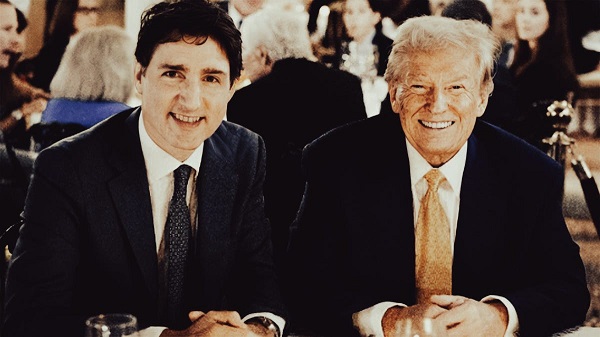
After years of mocking Trump and betting on a woke Washington, Trudeau now finds himself groveling to save Canada’s economy from MAGA’s hardball tactics.
Justin Trudeau has spent years mocking and deriding the MAGA movement, banking on a continuation of woke, progressive leadership in Washington. He bet everything on a Kamala Harris presidency, believing the days of Donald Trump’s America-first agenda were a distant memory. Now, with Trump back in office, Trudeau finds himself groveling at Mar-a-Lago, trying to salvage what’s left of Canada’s crumbling economic future.
This is the same Justin Trudeau who painted MAGA as a dangerous fringe movement, aligning himself with global elites and lecturing Americans on their supposed moral failings. He openly scoffed at Trump’s tariffs, his immigration policies, and his tough-on-China stance. Trudeau’s bet? That a Democrat-controlled America would reward his sycophantic pandering with favorable trade deals and continued subsidies for his progressive fantasies.
But Trudeau’s gamble failed. Trump is back, and Trudeau’s entire house of cards is collapsing. Canada’s economy, propped up by unfair trade advantages and U.S. energy consumption, is suddenly exposed. The 25% tariff threat on Canadian imports has Trudeau scrambling, not with bold leadership, but with empty promises and nervous laughter at Mar-a-Lago.
In a moment of pure irony, Trudeau, who once lectured Trump about values, now finds himself kneeling to kiss the ring. MAGA, what? Gone is the smug defiance, replaced by desperate platitudes about border security and economic cooperation. But let’s be clear: Trudeau isn’t there to protect Canadian interests; he’s there to save face. His government is woefully unprepared for Trump’s hardball tactics, and the Prime Minister’s office knows it.
During a recent dinner at Mar-a-Lago, President-elect Donald Trump reportedly suggested that Canada could become the 51st U.S. state if it couldn’t handle the economic impact of proposed tariffs. This remark came after Prime Minister Justin Trudeau expressed concerns that a 25% tariff on Canadian imports would “kill” Canada’s economy.
Trump’s comment underscores the significant economic interdependence between the two nations. In 2022, trade between the U.S. and Canada exceeded $900 billion, with the U.S. accounting for 63.4% of Canada’s global trade. This deep economic integration means that shifts in U.S. trade policy can have profound effects on Canada’s economy.
Trump’s quip about Canada becoming the “51st state” wasn’t just a joke; it was a power move, a reminder of who holds the cards in this relationship. While Trudeau nervously laughed, the message was clear: Canada needs the U.S. far more than the U.S. needs Canada. Trudeau’s weakness has brought us here. Instead of securing energy independence, he’s strangled Alberta’s oil industry with crippling regulations. Instead of standing up to China, he’s kowtowed to Beijing while relying on U.S. trade to keep his agenda afloat.
And now, Trudeau is at the mercy of a man he spent years mocking. Trump’s tariffs are a direct consequence of Trudeau’s inability to lead. His failure to address illegal immigration and the fentanyl crisis has made Canada not just a bad neighbor, but a liability.
Trudeau’s Liberals have always been more concerned with appearances than action, more focused on virtue signaling than real governance. But now, the bill has come due. And the man holding the ledger is none other than Donald J. Trump.
So here we are: Justin Trudeau, the woke globalist, reduced to pleading for mercy at Mar-a-Lago. His smugness replaced by desperation, his rhetoric exposed as hollow. MAGA what, indeed.
Subscribe to The Opposition with Dan Knight .
For the full experience, upgrade your subscription.
-
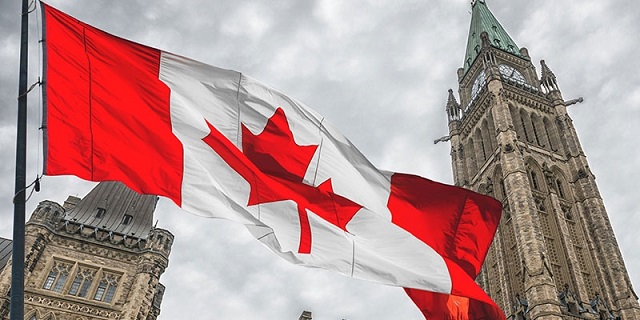
 David Clinton2 days ago
David Clinton2 days agoWhat Happens When Ministries Go Rogue?
-

 Crime2 days ago
Crime2 days agoWhat did Canada Ever Do to Draw Trump Tariff on Immigration, You Ask? Plenty
-
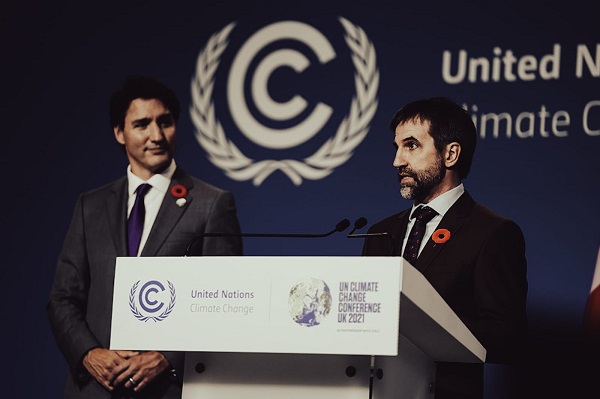
 Automotive2 days ago
Automotive2 days agoNorthvolt bankruptcy ominous sign for politicians’ EV gamble
-
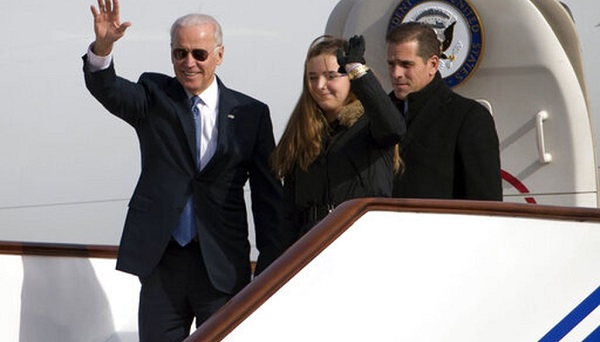
 Daily Caller2 days ago
Daily Caller2 days agoCNN’s Scott Jennings Says History Will Remember Biden As ‘Complete And Total Disgrace’ Over Hunter Pardoning
-
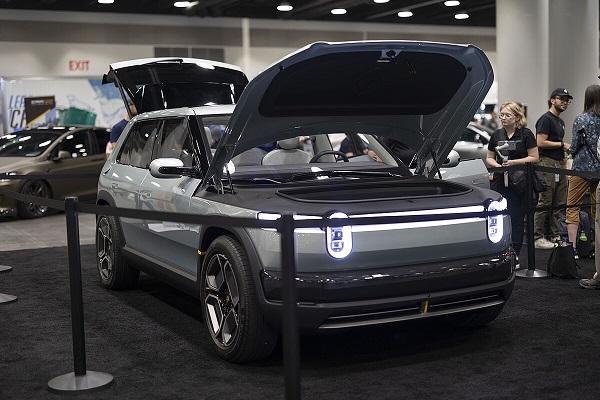
 Automotive2 days ago
Automotive2 days agoElectric-vehicle sales show modest spark
-

 Addictions2 days ago
Addictions2 days agoLondon Police Chief warns parliament about “safer supply” diversion
-

 Health2 days ago
Health2 days agoFauci admitted to RFK Jr. that none of 72 mandatory vaccines for children has ever been safety tested
-

 Daily Caller2 days ago
Daily Caller2 days ago‘Dark Day’: Another Western Country Backs Doctor-Assisted Suicide, Opens Door To ‘Murder Of Old And Sick’






